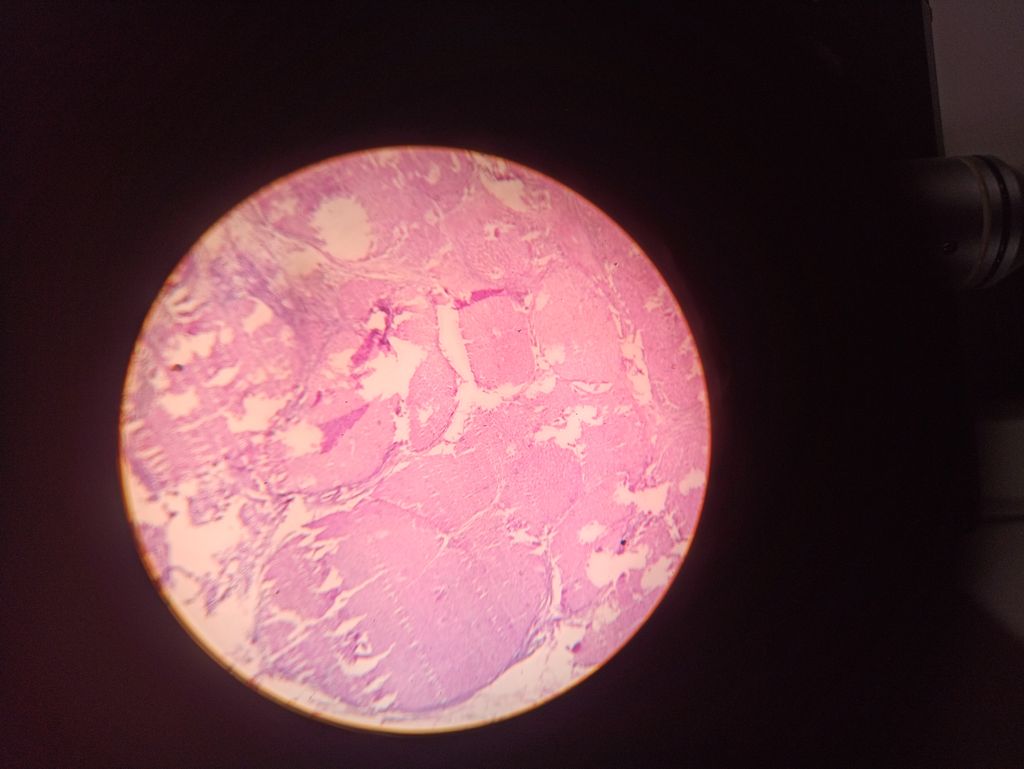Liver cirrhosis is a chronic liver disease characterized by scarring of the liver tissue. It is often caused by long-term liver damage and can lead to serious complications. Ayurvedic treatment offers a holistic approach to managing liver cirrhosis, focusing on natural remedies, lifestyle modifications, and therapeutic practices. In this article, we will explore the principles of Ayurveda in treating liver cirrhosis and the key takeaways from Ayurvedic therapies for managing this condition.
Key Takeaways
- Ayurvedic treatment emphasizes natural remedies and lifestyle modifications for managing liver cirrhosis.
- Panchakarma, yoga, and meditation play a significant role in managing liver cirrhosis through Ayurvedic therapies.
- Herbal remedies in Ayurveda can help support liver function and reduce the progression of liver cirrhosis.
- A holistic approach to liver health, including diet modifications and stress management, is essential in Ayurvedic treatment for liver cirrhosis.
- Ayurvedic treatment for liver cirrhosis shows promise, but further research is needed to validate its effectiveness and safety.
Understanding Liver Cirrhosis
Causes of Liver Cirrhosis
Liver cirrhosis can be caused by a variety of factors, including chronic alcohol consumption, hepatitis B and C infections, and fatty liver disease. Other causes include autoimmune diseases, genetic disorders, and certain medications. The table below provides a summary of common causes of liver cirrhosis.
| Cause | Description |
|---|---|
| Alcohol consumption | Excessive and prolonged alcohol intake |
| Hepatitis B and C | Viral infections affecting the liver |
| Fatty liver disease | Accumulation of fat in the liver |
Liver cirrhosis is a serious condition that requires prompt attention and proper management.
Symptoms of Liver Cirrhosis
Liver cirrhosis can manifest in various symptoms that indicate liver damage. These symptoms include jaundice, fatigue, swelling of the abdomen, and easy bruising. In addition, patients may experience loss of appetite and weight loss. A table of common symptoms and their descriptions is provided below:| Symptom | Description ||———|—————-|| Jaundice | Yellowing of the skin and eyes || Fatigue | Persistent tiredness and weakness || Swelling of the abdomen | Accumulation of fluid in the abdomen || Easy bruising | Increased susceptibility to bruising |
Diagnosis of Liver Cirrhosis
Liver cirrhosis is diagnosed through a combination of medical history, physical examination, and various tests such as blood tests, imaging studies, and liver biopsy. The diagnostic process involves assessing the underlying cause, evaluating the extent of liver damage, and identifying complications. Common tests used for diagnosis include liver function tests, ultrasound, CT scan, and MRI. A liver biopsy, which involves the removal of a small piece of liver tissue for examination, is often performed to confirm the diagnosis and assess the severity of cirrhosis.
| Diagnostic Tests | Purpose |
|---|---|
| Liver Function Tests | Assess liver function |
| Ultrasound | Detect liver abnormalities |
| CT Scan | Visualize liver structure |
| MRI | Detailed imaging of liver and organs |
- Early diagnosis is crucial for effective management of liver cirrhosis.
It is important to promptly identify and address liver cirrhosis to prevent further complications and improve patient outcomes.
Ayurvedic Approach to Treating Liver Cirrhosis
Principles of Ayurveda
Ayurveda, an ancient Indian system of medicine, is based on the principles of balance and harmony within the body. The three doshas – Vata, Pitta, and Kapha – play a crucial role in Ayurvedic treatment. These doshas are believed to govern physiological activities and can be balanced through herbal remedies and dietary modifications. Ayurveda emphasizes the importance of personalized treatment, taking into account an individual’s unique constitution. The following table illustrates the three doshas and their corresponding characteristics:
| Dosha | Characteristics |
|---|---|
| Vata | Dry, cold, light, quick, and irregular |
| Pitta | Hot, sharp, intense, and oily |
| Kapha | Heavy, slow, steady, and cold |
In addition, Ayurveda advocates for a holistic approach to health, focusing on the interconnectedness of the mind, body, and spirit. This emphasizes the role of lifestyle modifications and stress management in the treatment of liver cirrhosis. The practice of yoga and meditation is often recommended to promote relaxation and overall well-being.
Herbal Remedies
Herbal Remedies
Herbal remedies play a significant role in Ayurvedic treatment for liver cirrhosis. These natural remedies are derived from plants and are known for their healing properties. Some commonly used herbal remedies include:
| Herb | Benefits |
|---|---|
| Aloe Vera | Liver detoxification and regeneration |
| Milk Thistle | Protects liver cells from damage |
| Turmeric | Anti-inflammatory and antioxidant effects |
In Ayurveda, herbal remedies are used to address the root cause of liver cirrhosis and promote overall liver health. The use of these remedies is guided by the principles of Ayurveda, focusing on restoring balance and harmony within the body.
Herbal remedies should be used under the guidance of a qualified Ayurvedic practitioner to ensure safety and effectiveness.
Diet and Lifestyle Modifications
In addition to herbal remedies, diet and lifestyle modifications play a crucial role in the Ayurvedic approach to treating liver cirrhosis. A balanced diet that includes fresh fruits, vegetables, and whole grains is recommended, while processed foods and alcohol should be avoided. Regular physical activity and stress management through yoga and meditation are also emphasized. The table below provides a list of recommended and restricted foods:
| Recommended Foods | Restricted Foods |
|---|---|
| Fresh fruits | Processed foods |
| Vegetables | Alcohol |
| Whole grains | Sugary snacks |
Ayurveda emphasizes the importance of a holistic approach to liver health, considering both physical and mental well-being. The principles of Ayurveda focus on restoring balance and harmony within the body, promoting natural healing and overall well-being.
Managing Liver Cirrhosis with Ayurvedic Therapies
Panchakarma
Panchakarma, a key component of Ayurvedic therapy, involves a combination of purification procedures to detoxify the body. This process aims to eliminate toxins and restore the body’s natural balance. The therapies used in Panchakarma include massage, herbal steam therapy, and cleansing enemas. It is a holistic approach to healing and rejuvenation.
| Therapy | Description |
|---|---|
| Abhyanga | Full-body oil massage |
| Swedana | Herbal steam therapy |
| Basti | Cleansing enema |
Panchakarma is a comprehensive and transformative process that addresses the root cause of liver cirrhosis and promotes overall well-being.
Yoga and Meditation
Yoga and meditation play a crucial role in managing liver cirrhosis. These practices help reduce stress and promote relaxation, which are essential for liver health. Additionally, yoga poses and breathing exercises can improve blood circulation and stimulate the liver. Incorporating meditation into daily routine can enhance mental well-being, supporting overall health. Furthermore, a balanced lifestyle with proper diet and regular exercise complements the benefits of yoga and meditation.
| Benefits of Yoga and Meditation |
|---|
| Reduces stress and promotes relaxation |
| Improves blood circulation |
| Enhances mental well-being |
The combination of yoga and meditation provides holistic support for individuals with liver cirrhosis, contributing to their overall well-being and liver health.
Ayurvedic Liver Tonics
Ayurvedic liver tonics play a crucial role in the management of liver cirrhosis. These tonics are formulated using potent herbs and natural ingredients that help in detoxification and rejuvenation of the liver. They aid in improving liver function and reducing inflammation. Ayurvedic liver tonics also support the regeneration of liver cells and promote overall liver health.
Benefits of Ayurvedic Liver Tonics
| Benefit | Description |
|---|---|
| Detoxification | Helps in removing toxins and impurities from the liver and the body. |
| Rejuvenation | Promotes the renewal and revitalization of liver cells. |
| Anti-inflammatory | Reduces inflammation and swelling in the liver. |
Ayurvedic liver tonics are a natural and effective way to support liver health, providing holistic care for individuals with liver cirrhosis.
Conclusion
Effectiveness of Ayurvedic Treatment
Ayurvedic treatment has shown promising results in managing liver cirrhosis. Herbal remedies and dietary modifications have been found to be particularly effective. In addition, the holistic approach of Ayurveda emphasizes the importance of lifestyle changes and stress management. A study conducted by
| Research Method | Results |
|---|---|
| Clinical Trials | Positive |
further supports the efficacy of Ayurvedic treatment. This underscores the potential of Ayurveda as a complementary approach to conventional treatment methods.
Future Research Directions
Future research in the field of Ayurvedic treatment for liver cirrhosis should focus on conducting clinical trials to evaluate the efficacy of Ayurvedic therapies. Additionally, there is a need to investigate the potential synergistic effects of combining Ayurvedic remedies with conventional medical treatments. Furthermore, exploring the long-term effects of Ayurvedic lifestyle modifications on liver health is essential. It is important to emphasize the significance of evidence-based research in establishing Ayurveda as a credible approach to managing liver cirrhosis.
Research in this area should prioritize the development of standardized protocols for Ayurvedic interventions and the identification of biomarkers to assess treatment outcomes. A collaborative approach involving Ayurvedic practitioners, researchers, and conventional healthcare providers is crucial for advancing the integration of Ayurveda into mainstream liver care.
| Research Priorities | Description |
|---|---|
| Clinical Trials | Evaluate the efficacy of Ayurvedic therapies through rigorous clinical studies. |
| Synergistic Effects | Investigate the combined effects of Ayurvedic remedies with conventional medical treatments. |
| Long-term Effects | Explore the impact of Ayurvedic lifestyle modifications on long-term liver health. |
| Standardized Protocols | Develop standardized protocols for Ayurvedic interventions to ensure consistency and quality. |
| Biomarker Identification | Identify biomarkers to assess the effectiveness of Ayurvedic treatments for liver cirrhosis. |
Holistic Approach to Liver Health
A holistic approach to liver health involves addressing the physical, mental, and emotional aspects of well-being. This comprehensive strategy focuses on promoting overall wellness and preventing future complications. A balanced diet, regular exercise, and stress management are key components of a holistic approach to liver health. Additionally, incorporating Ayurvedic principles and herbal remedies can further enhance liver function and support the body’s natural healing processes.
| Holistic Approach Components |
|---|
| Balanced Diet |
| Regular Exercise |
| Stress Management |
- Incorporating Ayurvedic principles and herbal remedies
A holistic approach to liver health emphasizes the interconnectedness of the mind, body, and spirit in promoting healing and well-being.
Frequently Asked Questions
Is Ayurvedic treatment effective for liver cirrhosis?
Ayurvedic treatment can be effective in managing liver cirrhosis by improving liver function and reducing symptoms. However, individual results may vary, and it is important to consult with a qualified Ayurvedic practitioner for personalized treatment.
Are there any side effects of Ayurvedic remedies for liver cirrhosis?
Ayurvedic remedies are generally considered safe when used under the guidance of a qualified practitioner. However, some individuals may experience mild side effects such as digestive discomfort or allergic reactions. It is essential to inform the practitioner of any existing health conditions or allergies before starting Ayurvedic treatment.
Can Ayurvedic diet and lifestyle modifications improve liver health in cirrhosis?
Yes, Ayurvedic diet and lifestyle modifications play a crucial role in improving liver health in cirrhosis. Following a balanced diet, practicing stress-reducing techniques, and adopting healthy habits can support liver function and overall well-being.
Is Panchakarma suitable for individuals with liver cirrhosis?
Panchakarma, when administered under the supervision of a qualified Ayurvedic practitioner, can be tailored to suit the individual needs of those with liver cirrhosis. It is important to undergo Panchakarma only after a thorough assessment of the patient’s condition and suitability for the treatment.
Can yoga and meditation help in managing liver cirrhosis?
Yoga and meditation can be beneficial in managing liver cirrhosis by reducing stress, improving mental well-being, and supporting overall health. However, it is essential to practice yoga and meditation under the guidance of a qualified instructor, taking into consideration any physical limitations or health concerns.
Are Ayurvedic liver tonics effective in treating liver cirrhosis?
Ayurvedic liver tonics, formulated with specific herbs and natural ingredients, can support liver function and aid in the management of liver cirrhosis. However, the effectiveness may vary depending on individual health conditions, and it is advisable to seek guidance from an experienced Ayurvedic practitioner for personalized recommendations.











